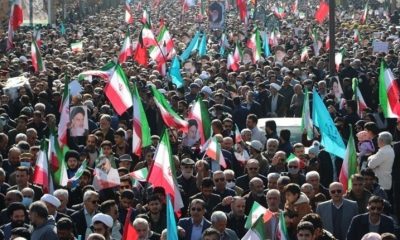MPCast
“Crossing Red Lines: The Impact of Israel’s Strike on Haniyeh Amidst Gaza Conflict”
Following the assassination of Ismail Haniyeh, the head of Hamas’s political bureau in Tehran, there has been speculation about Israel’s motives, Iran’s potential response, and the future of regional tensions.
The assassination of a political figure who was in Tehran for the inauguration of Iran’s new president marked a significant breach of red lines by Israel—a move that Israeli officials likely anticipated would have serious consequences.
However, given the ongoing Gaza conflict, Israel needed a bold operation with far-reaching implications.
There are various speculated reasons for Netanyahu’s decision to plan this assassination.
The first perspective is that it was a terrorist sabotage operation aimed at deflecting the humanitarian crisis in Gaza escalating regional tensions, and dragging Iran into a direct war.
Israeli officials were confident that Iran would respond to this assassination, leading to a retaliatory strike by Israel and the onset of a war that would draw the US into the conflict, resulting in a confrontation between Iran and the US At this time, a regional war would benefit Netanyahu by diverting attention from the dire humanitarian situation in Gaza, halting the pursuit of a permanent ceasefire and the two-state solution, and escalating tensions between Iran and the US, which could potentially lead to the Democrats’ defeat and Trump’s victory—an outcome that would greatly serve Israel’s future interests.
Additionally, the timing of this assassination, which took place on the day of Iran’s new president’s inauguration, suggests that Israeli officials are worried about the new Iranian administration’s approach to foreign policy.
This approach could potentially ease tensions between Iran and Western countries.
Therefore, it seems that they intended to create tension and conflict in the region to hinder any potential changes in Iran’s foreign policy. This could also obstruct Iran’s political and economic progress and improvement domestically, regionally, and globally.
Additionally, the timing of this assassination, which took place on the day of Iran’s new president’s inauguration, suggests that Israeli officials are worried about the new Iranian administration’s approach to foreign policy.
This approach could potentially ease tensions between Iran and Western countries.
Therefore, it seems that they intended to create tension and conflict in the region to hinder any potential changes in Iran’s foreign policy. This could also obstruct Iran’s political and economic progress and improvement domestically, regionally, and globally.
Public opinion in Western countries and even in the US, which traditionally supports Israel against Palestinian groups, is now expressing disgust with Israel’s actions after witnessing the daily suffering of the people of Gaza in the media. Protests against Israel are now a regular occurrence in both Western and Eastern countries that are allies of Israel. Although officials in these countries and international organizations have tried to softly criticize Israel and maintain the dignity of their traditional ally, the public does not consider these concerns and openly criticizes Israel and its actions.
In Gaza, people expressed their opposition to Israel’s actions through various demonstrations.
During Netanyahu’s recent visit to the US and his speech in Congress, many US representatives supported Netanyahu’s stance against the Palestinian people by giving him a standing ovation. However, outside the Congress, the American people were chanting against Netanyahu and his policies in Gaza.
This new public reaction was a cause for concern for Netanyahu, as Israel was always perceived as a powerful and oppressed state with a positive image, while Iran and its allies were seen as the evil forces to be confronted.
However, during Netanyahu’s visit, it became clear that the world’s perception of Israel had changed due to the Gaza war. In response, the Israeli regime sought to portray Israel as an oppressed and constantly threatened state while labeling Iran as a rogue state in need of containment.
The policy of Western countries and the UN during Israel’s attack on the Iranian embassy in Damascus, where no punitive measures were taken against Israel, led Israeli officials to think they could take any action to change the situation. Their analysis was correct; there was no condemnation or sanctions against Israel, and the only response from Iran was calls for restraint and avoiding escalation.
In summary, the prolonged Gaza war, Israel’s failure to achieve its objectives, and its loss of credibility due to inhumane actions during the conflict, along with positive political developments in Iran and the increasing likelihood of improved Iranian foreign relations, prompted Israeli officials to assassinate to hinder developments against them and push Iran towards aggressive actions. In this context, the best response from Iran would be reciprocal action.
If Israel has not accepted responsibility for Haniyeh’s assassination to avoid consequences, Iran should do the same, especially considering Iran’s advancements in drones, smart weapons, and remote control technology. Now is the time to demonstrate Iran’s capabilities in this area. In the age of artificial intelligence, deterrence is not achieved solely through missile attacks. Iran’s retaliation can take innovative, low-cost, and diverse forms that can also serve as a lesson.

You may like
-


Iranian People Unite to Condemn Rioters, Defend Islamic Republic
-


‘Israel is always looking for a new war against Hezbollah’
-


‘Terrorism—the intentional targeting of innocent civilians—is incompatible with jihad’
-


‘Islamophobes perpetuate the myth that Muslims are plotting to overtake the West’
-


‘BDS will grow as Western continue their craven subservience to Israel’
-


SURA 98. Baiyina, or The Clear Evidence


Iranian People Unite to Condemn Rioters, Defend Islamic Republic

Fact Check: Did Iran Introduce a $7 Payment to Quell Recent Unrest?

‘Israel is always looking for a new war against Hezbollah’

‘Terrorism—the intentional targeting of innocent civilians—is incompatible with jihad’

‘Islamophobes perpetuate the myth that Muslims are plotting to overtake the West’

‘Terrorism—the intentional targeting of innocent civilians—is incompatible with jihad’

Fact Check: Did Iran Introduce a $7 Payment to Quell Recent Unrest?

Iranian People Unite to Condemn Rioters, Defend Islamic Republic

‘Israel is always looking for a new war against Hezbollah’

Trump’s Worst Nightmare: How a Muslim Mayor Is Reshaping New York—and Challenging the Status Quo

Italian journalist participates in Arbaeen, Iraq

Qisas In Islam

Since the start of 2024; info motion

Quince, Iranian Traditional Medicine (ITM)

